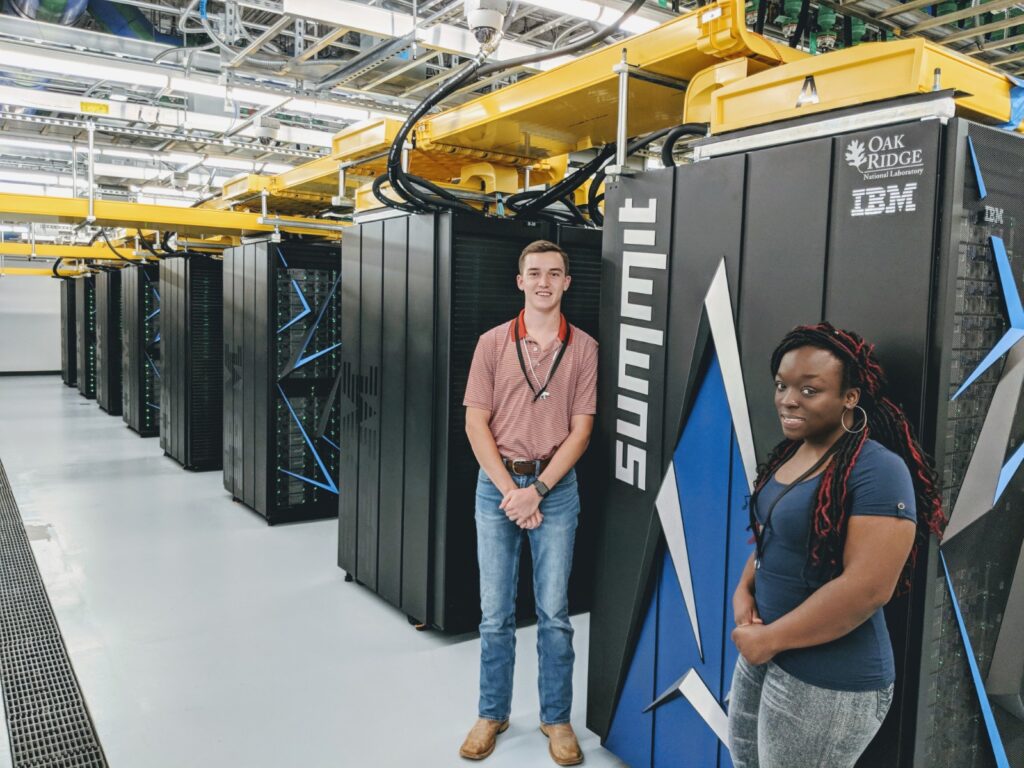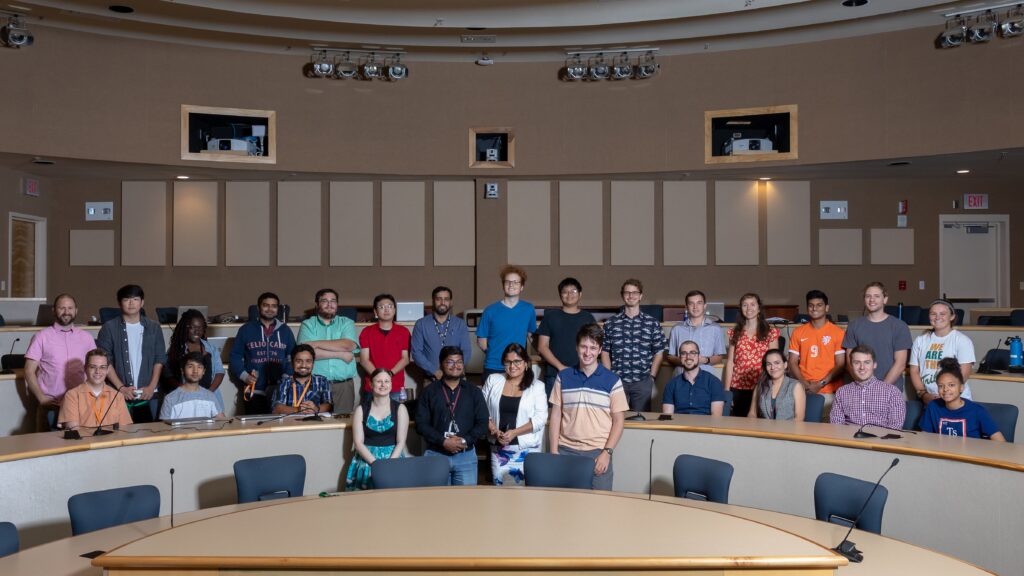Highlights of internship include unveiling of world’s fastest supercomputer
Two University of West Alabama engineering technology students recently participated in a 10-week paid internship at the Oak Ridge National Laboratory (ORNL) in Tennessee, the largest U.S. Department of Energy science and energy laboratory. While there, the students worked the laboratory’s specialized areas of scientific discovery, clean energy solutions and security technologies.
Tyesha Ruffin of Livingston, Ala., and Nelson Robbins of Brooksville, Miss., studied in the climate change sector at the laboratory as data science engineers. They were trained to use world-renowned data collection and analyst programs, using data to study climate change. They were also introduced to artificial intelligence and machine learning as it relates to climate change.
Ruffin and Robbins both said they gained experience while learning to overcome obstacles at the lab.
“This internship has given me more confidence in myself and my abilities,” Ruffin said. “I now feel more open to solving any problems that I feel incapable of figuring out myself, by asking assistance from experts.”
Robbins said his biggest challenge was getting out of his comfort zone. He said that his professional interpersonal skills improved because of the internship. Soft skills such as this are often overlooked but are largely beneficial for students nearing graduation.
“After this opportunity, I am now not as shy as I once was and I am able to go up to a new person and be able to have a conversation with them without hesitation, “said Robbins.
The students attended the unveiling ceremony of the world’s fastest supercomputer, Summit. Summit is estimated to cover the space of two basketball courts and require 136 miles of cabling. Researchers are using Summit for diverse fields such as cosmology, medicine, and climatology, the scientific study of climate over time.
Robbins and Ruffin with supercomputer Summit
Robbins and Ruffin attended the unveiling of the world’s fastest supercomputer, Summit.
photos provided by ORNL

“It was pretty amazing to work at a place where they are always competing with rival countries in producing the fastest supercomputers out there,” said Robbins.
Both students agree that knowledge they gained from the internship will help them in the future.
“The skills and connections I have acquired from Oak Ridge will help me through the rest of my career as a student and as a computer engineer,” said Robbins.
“Working at ORNL has given me more confidence in myself, and my work and has proven to me that with positivity, I can achieve anything that I encounter,” Ruffin said. “Diligence is the key to success.”
“The scientists gave very good feedback about the students’ work fulfilling the needs of scientific climate data engineering and programming for the data analytics group at ORNL,” said Dr. Balakrishna Gokaraju, assistant professor of engineering technology at UWA. “They intend to call them again next summer.”
“I have been collaborating with the scientists at ORNL for the past five years with my research studies in remote sensing and high performance computing, and am very glad to see that these collaborations are opening the doors for undergraduate research opportunities, such as these internships and future co-op programs with these national laboratories,” Gokaraju said.
“I had a lot of faith in these two students, and they carried lot of pressure on their shoulders being the first interns from UWA to ORNL, and they had high expectations of performing the job well in representing the UWA’s Engineering Technology degree program,” Gokaraju said. “We greatly appreciate the ORNL Higher Education Research Experiences (HERE) Summer Internship opportunity for our students at UWA.”
Student interns at ORNL
Tyesha Ruffin of Livingston, Ala., and Nelson Robbins of Brooksville, Miss., studied in the climate change sector at Oak Ridge National Laboratory as data science engineers. They were part of a select group of students chosen from across the nation to intern at the U.S. Department of Energy’s largest science and energy laboratory.
photos provided by ORNL

Robbins plans to continue his education by completing a masters and Ph.D. program. He wants to focus his studies in machine learning or computational science. Ruffin plans to pursue a master’s degree in electrical engineering and a career in electrical engineering or robot automation.
To learn more about UWA’s engineering technology program visit uwa.edu/programs/engineering-technology/. Contact the department at cist@uwa.edu or call (205) 652-3666.